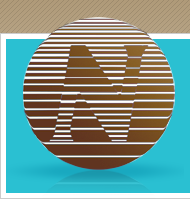Transgressive Textualities: A Postgraduate Symposium (CFP)
Transgressive Textualities: A Postgraduate Symposium
Department of English, University of Malta
20–21 May 2016
Call for Papers
https://www.facebook.com/events/907457572630392/
[T]he Text cannot stop (for example, at a library shelf); its constitutive moment is traversal….
– Roland Barthes
[L]iterature seemed to me, in a confused way, to be the institution which allows one to say everything, in every way.
– Jacques Derrida
[I]n London the most interesting literary activity is happening outside the book.
– Tom McCarthy
Language is transgressive. Any act of comprehension is in effect the demonstration of a dissatisfaction with the bounds of the mere graphic inscription or sound of words. To render sense we ‛transgress’ beyond the marks on the page, beyond the auditory phenomenon. An experience of the limit is, then, right at the (transgressively dispersed) heart of language.
Literary language multiplies and amplifies this originary transgression. It foregrounds and celebrates the potentially radically unstable metaphoricity of language that not only cannot be contained within limits, but is most what it is at the point of traversal through and beyond limits. Literary language, animated by what Wallace Stevens called ‛the intricate evasions of as’, is, it might be said, nothing if not transgressively exorbitant.
The ubiquitous word ‛text’ perhaps most starkly articulates this dual limit-and-transgression nature of language. On the one hand text is the material existence of language, but on the other it is simply that which is readable, and can only be experienced as a production, as an activity that happens beyond the page. The material text is simply the occasion of this transgression.
But literature is changing and we might now ask what new or alternative forms of material instantiation of the readable now invite transgression towards signification? Is the site of the limit experience of the literary still predominantly the printed text, or is the literary migrating elsewhere, in the ultimate act of self-transgression, to be hosted and facilitated by new and emerging forms of textuality? Where, it might be asked, do we find transgressive textualities today?
And then there are the perennial forms of transgression associated with literature, whatever the context of its manifestation – the ways in which literature can challenge social and institutional structures, cultural and moral conventions and, indeed, law itself. Provocative and controversial, literature has always been something of an outlaw discourse, saying the unsayable, thinking the unthinkable….
This interdisciplinary Symposium is interested in exploring transgressive textualities through their various forms and manifestations, including literature and literary theory, language, cultural criticism, film, digital art, digital video games, performance, the internet, philosophy and other approaches.
Papers may discuss, but need not be limited to, issues like the following:
Taboo and censorship
Literature and protest
Intertextuality
Posthumanism
Transgression and subjectivity
Electronic literature
Body as a site of transgression
Multimedia adaptations of the literary
Queer literature
Fan fiction / fandom
Translation
Power, discourse and radical politics
Participatory culture
Appropriation of language
Violence and psychosis
Humour and horror
The carnivalesque
Apocalypse fiction
Transgressive philosophies and philosophies of transgression
Transgressive art and the art of transgression
Proposals of around 300 words, accompanied by a short biographical note not exceeding 100 words, should be emailed to transgressivetextualities2016@um.edu.mt by 18th April 2016. The organisers are planning to publish selected Symposium papers in the postgraduate journal Antae (https://antaejournal.com).
Dr Giuliana Fenech
Department of English
Rm313, Faculty of Arts
University of Malta

